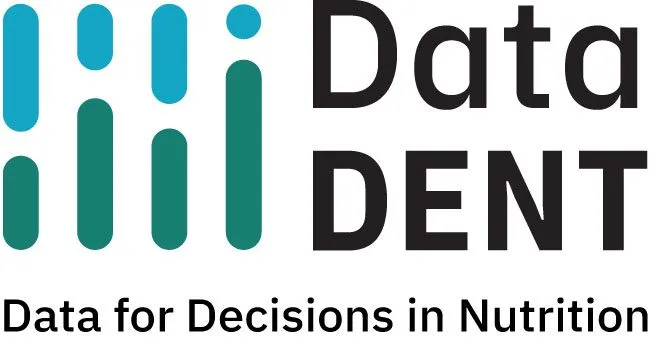DataDENT champions strategic planning, financing, and capacity strengthening as pillars of a strong enabling environment for nutrition data. DataDENT has supported governments and partners in Africa and South Asia in developing strategic outputs harmonized with national multisector plans, stakeholder priorities, and existing nutrition information system (NIS) infrastructure. In this blog post, we highlight the work being carried out in Ethiopia.
Background
The Government of Ethiopia has demonstrated political commitment to fostering an enabling environment for nutrition data that reflects strategic planning, financing, and capacity strengthening.
Ethiopia’s Food and Nutrition Strategy (FNS) 2021-2030 promotes a coordinated and comprehensive food and nutrition security approach and includes a data-focused sub-strategy. Similarly, the Seqota Declaration (SD), the Ethiopian government’s high-level commitment to end stunting in children under two years by 2030, which accelerates the implementation of the FNS, includes building a multisector nutrition information system (NIS) using routine administrative data.
Meaningful efforts have been made to cost the data components of these strategies, but there is limited data on actual budget allocations and spending. A 2022 review by DataDENT and the Ethiopian Public Health Institute found that government budget categories are not broken down at a level that specifies nutrition data-related allocations; also, donors make significant contributions to nutrition data financing that are not systematically tracked.
Capacity strengthening across the nutrition data value chain is another recognized need. During a July 2023, national nutrition policy review, poor data quality and low technical competency around nutrition data were highlighted as barriers to the effective use of data in FNS implementation. Specifically, the review identified limited data utilization across administrative levels, inadequate systems for nutrition data management, unclear delimitation of roles and responsibilities around nutrition data systems, and the need for documented data management plans at all levels.
What capacity-strengthening support is needed to scale up multisector nutrition data platforms in Ethiopia?
As part of DataDENT’s ongoing efforts in Ethiopia, we will support the Seqota Declaration Federal Program Delivery Unit to scale two innovative web-based tools for administrative data capture, collation, and communications.
The Unified Nutrition Information System (UNISE) captures a set of nutrition-specific and nutrition-sensitive indicators. Data are collected and reported from lower administrative units (sub-district or district) to higher levels (zonal, regional, federal) through the DHIS2 and presented in a dashboard to decision-makers from all FNS implementing sectors. The UNISE system existed prior to the Seqota Declaration but has been significantly strengthened. The second data innovation, the Resource Tracking and Partnership Management Tool (RTPM), is a stakeholder mapping tool designed for the Seqota Declaration that allows actors at the district and regional level to track implementing partners, their performance, and financing across sectors.
The Seqota Declaration was launched during the Third International Conference on Financing for Development held in Addis Ababa in July 2015. It is informed by a conceptual framework built around three pathways of change designed to deliver high-impact nutrition-specific, nutrition-sensitive, and infrastructure interventions. The Seqota Declaration roadmap – including the development and scaling of the UNISE and RTPM – is being implemented in three phases over 15 years.
The UNISE and RTPM were designed and piloted during the innovation phase (2016-2020), which focused on implementing prioritized, proven, high-impact interventions across sectors and testing and evidence generation around innovative solutions. In the current expansion phase (2021-2025), the interventions and innovations are being scaled to more vulnerable and high stunting-prevalence districts. As of August 2023, 71 of the 240 Seqota Declaration implementing districts in 12 regions are implementing the UNISE and RTPM. The final national scale-up phase (2026-2030) will involve full implementation of the multisector interventions and the data tools to over 700 woredas nationwide.
Significant human and financial resources must be mobilized to reach the goal of scaling the UNISE and RTPM nationwide by 2030. On the people side, the tools require multifaceted teams with the capacity, processes, and systems to collect, collate, interpret, and communicate high-quality routine nutrition data to decision-makers. Training curriculum and coaching are needed to ensure that core competencies – the knowledge and skills required for successful implementation – are embodied at district and regional levels. The financial resources required for this level of detailed capacity strengthening were not accounted for in previous UNISE and RTPM costing exercises, which focused on infrastructure (e.g., laptops, software, personnel, and one-time training).
DataDENT will support the Seqota Declaration Federal Program Delivery Unit to identify and assess the gaps in the core competencies needed to support national UNISE and RTPM scale-up. We will collaborate with others to create a capacity-strengthening plan, including assessments and other supporting materials. Finally, we will cost the national scale-up of recommended capacity-strengthening efforts for the two tools by 2030 and develop a sustainable and feasible financing strategy. The strategy will identify new funding streams and be used to advocate for sustainable financing of the NIS.
Why is this work important for the global nutrition community?
Ethiopia is one of only a few countries with routinely collected data on the reach of nutrition interventions across sectors and a system for tracking nutrition stakeholders and financing. Many other countries aspire to develop such systems. Countries also face challenges similar to Ethiopia’s on the quality of administrative data and limited use of available data to inform nutrition decision-making.
DataDENT will document lessons learned on designing, costing, and financing capacity strengthening to scale up Ethiopia’s multisector data tools successfully. We will also use the Ethiopia work to validate a broader framework of core competencies for nutrition data literacy that can be applied across contexts.
